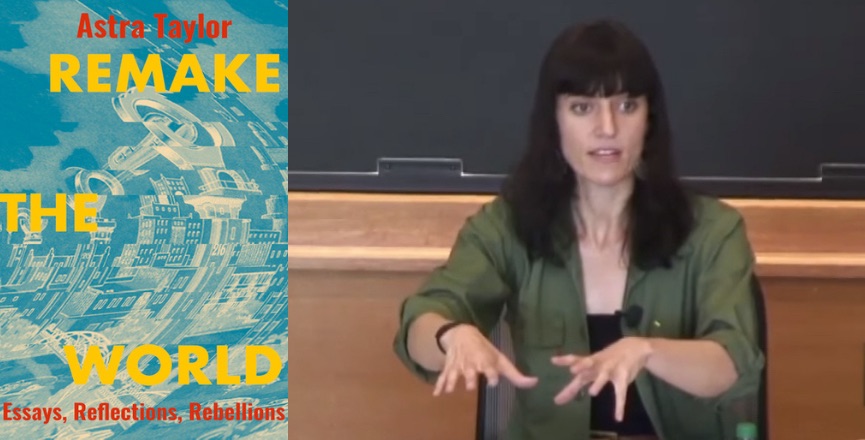Astra Taylor begins her new book with the coronavirus pandemic and the death throes of the last days of the Trump administration, culminating in the brazen Capitol Hill attack. In her deft and accessible writing style, Taylor gives a nuanced history of how we got to where we are and the dilapidated foundations that democracy, economics and inequality function within in the contemporary U.S. context. Her latest from Haymarket Books reads like a greatest hits package exposing the baked-in structural injustices that perpetuate political harm and give it its particularly hard-edged American form.
While the particular characteristics of Trumpism may seem like a horrific exception, it is the rotten core and dysfunction in the very structure of American political culture. Taylor is particularly concerned with how that works against the body politic in fundamental and pernicious ways.
It is the link between authoritarian populism, racism and the clickbait post-truth economy — and the myriad methods and messengers of its deployment — that she interrogates in this collection. It makes one think that the guardrails of democracy that protect free speech also allow for hate speech to be mobilized.
In the Canadian context, Bernie Sanders and Alexandria Ocasio-Cortez would be mainstream NDPers rather than portrayed as radical democratic socialists in the U.S. context. Political labels are relative. Gun control and health care were fought-for political victories in the Canadian setting, but the structural barriers to enact change in the political context are generationally difficult to overcome, particularly the influence of money in the political system.
There are myriad questions of strategy and how to think through an activism that functions at the scale of power. Taylor states that activism is more reactive than contemplative. Important questions of movement durability, strategy and organization are considered. Thinking about hegemony is sometimes left out of considerations of how to deploy and mobilize political force by social movements.
The book includes long-form articles that consider a diverse set of topics including debt, the problems of the electoral college and voter suppression, the failure of the university, intergenerational justice, animal rights and climate change.
Taylor is at her strongest when getting deep into questions of democracy. Having completed a full-length documentary and book on the topic in recent years, she’s a messenger of a critical and affirmative politics that is timely. What is most striking is her personal reflection on real-world challenges and the theoretical depth she brings to bear on the topics she takes on as a social movement writer.
What also gets her animated is what she describes as the country’s ruinous and unrelenting war on people’s ability to come together for the common good. This includes the structural problem of the electoral college where the District of Columbia and Puerto Rico don’t have the status of states or Senate representation. The larger questions of intergenerational justice when it comes to climate change, debt and other related social issues are important to consider.
The democratic paradox of who counts as the people and what counts as representation is something Taylor comes back to in a number of books and creative projects. Whether you are familiar with Taylor’s work or new to it, it’s a great primer to one of the most dedicated voices taking on the unjust structural problems of the U.S. political system.
Imagining a world beyond the problem of political horizons, time and scale simultaneously is a call for a more rigorous political complexity and a commitment to what her friend, Vancouver activist and writer carla bergman, calls “joyful militancy.” In these sick times, Astra Taylor’s words in her new book are field notes for the coming progressive politics on the near horizon.
Am Johal is director of SFU’s Vancity Office of Community Engagement and co-author with Matt Hern and Joe Sacco of Global Warming and the Sweetness of Life: A Tar Sands Tale. He is the host of the Below the Radar podcast.
Author image: Berkman Klein Center for Internet & Society/Wikimedia Commons



